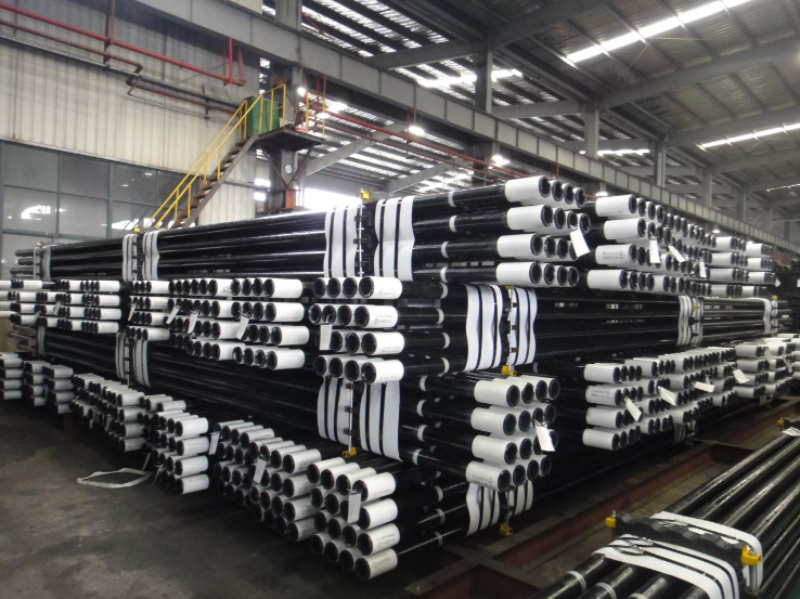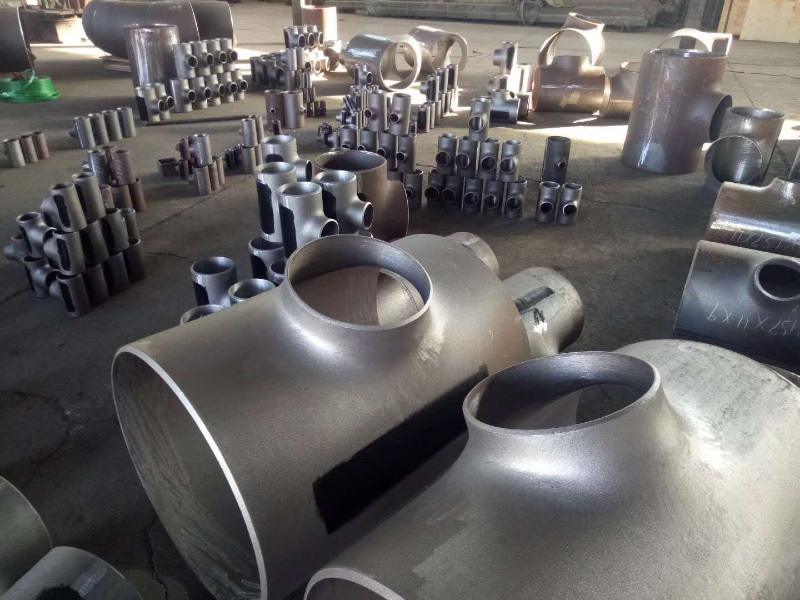Leading Smls Pipe and fittings supplier from China since 1991
Understanding Steel Casing Pipes in Electrical Insulation Applications
Steel casing pipes are a crucial component in various construction and engineering applications, particularly in the electrical insulation sector. These pipes serve as protective conduits for electrical wiring and equipment, ensuring safety and reliability in electrical systems. In this article, we will delve into the characteristics, applications, and benefits of steel casing pipes, and how they
Jun 29,2025

Steel casing pipes are a crucial component in various construction and engineering applications, particularly in the electrical insulation sector. These pipes serve as protective conduits for electrical wiring and equipment, ensuring safety and reliability in electrical systems. In this article, we will delve into the characteristics, applications, and benefits of steel casing pipes, and how they contribute to the overall functionality of insulation materials.
Primarily, steel casing pipes are known for their strength, durability, and resistance to corrosion, making them an ideal choice for environments that require robust protection against physical damage and environmental factors. The steel material provides an excellent barrier that can withstand high-pressure conditions, which is particularly beneficial in underground installations or areas exposed to harsh weather.
In the context of insulation materials, steel casing pipes are often used to house electrical conductors and cables. This application prevents potential damage to the cables and minimizes the risk of short circuits, ensuring that electrical systems operate safely and efficiently. Moreover, the use of steel casing pipes can enhance the longevity of electrical installations by safeguarding sensitive electrical components from moisture and other damaging elements.
Another significant aspect of steel casing pipes is their versatility in design and application. They can be manufactured in various sizes and thicknesses to accommodate different project requirements. This customization ensures that engineers can select the most suitable casing pipe for their specific insulation needs, ultimately leading to improved performance and safety standards in electrical applications.
Furthermore, the installation of steel casing pipes is relatively straightforward, allowing for efficient project execution. Their mechanical properties allow for reliable connections and support in various configurations, making them a go-to choice for both residential and commercial electrical systems. Proper installation techniques and adherence to industry standards are critical to maximizing the effectiveness of these pipes in insulation applications.
Finally, while selecting steel casing pipes, it is essential to consider factors such as the specific environment in which they will be used, the type of insulation materials being employed, and local regulations. By understanding these elements, professionals can ensure the right choices are made that will lead to optimal performance and safety in electrical systems.
In conclusion, steel casing pipes play a vital role in the electrical insulation industry. Their robust properties and versatility make them an indispensable component for protecting electrical systems and enhancing their longevity. Whether you are involved in construction, electrical engineering, or facility management, understanding the importance of steel casing pipes can provide valuable insights into maintaining efficient and safe electrical installations.
Primarily, steel casing pipes are known for their strength, durability, and resistance to corrosion, making them an ideal choice for environments that require robust protection against physical damage and environmental factors. The steel material provides an excellent barrier that can withstand high-pressure conditions, which is particularly beneficial in underground installations or areas exposed to harsh weather.
In the context of insulation materials, steel casing pipes are often used to house electrical conductors and cables. This application prevents potential damage to the cables and minimizes the risk of short circuits, ensuring that electrical systems operate safely and efficiently. Moreover, the use of steel casing pipes can enhance the longevity of electrical installations by safeguarding sensitive electrical components from moisture and other damaging elements.
Another significant aspect of steel casing pipes is their versatility in design and application. They can be manufactured in various sizes and thicknesses to accommodate different project requirements. This customization ensures that engineers can select the most suitable casing pipe for their specific insulation needs, ultimately leading to improved performance and safety standards in electrical applications.
Furthermore, the installation of steel casing pipes is relatively straightforward, allowing for efficient project execution. Their mechanical properties allow for reliable connections and support in various configurations, making them a go-to choice for both residential and commercial electrical systems. Proper installation techniques and adherence to industry standards are critical to maximizing the effectiveness of these pipes in insulation applications.
Finally, while selecting steel casing pipes, it is essential to consider factors such as the specific environment in which they will be used, the type of insulation materials being employed, and local regulations. By understanding these elements, professionals can ensure the right choices are made that will lead to optimal performance and safety in electrical systems.
In conclusion, steel casing pipes play a vital role in the electrical insulation industry. Their robust properties and versatility make them an indispensable component for protecting electrical systems and enhancing their longevity. Whether you are involved in construction, electrical engineering, or facility management, understanding the importance of steel casing pipes can provide valuable insights into maintaining efficient and safe electrical installations.
Hot Tags:
PREVIOUS:






